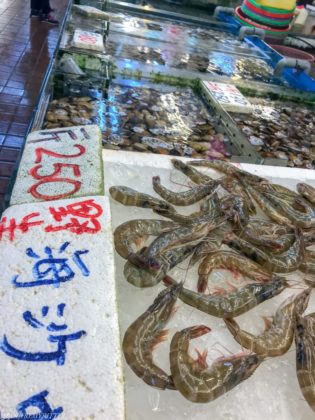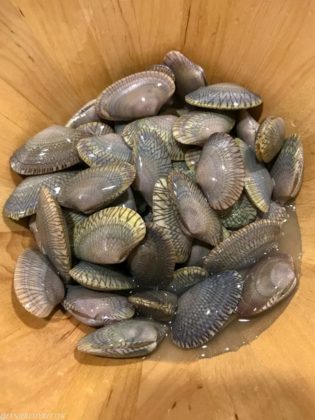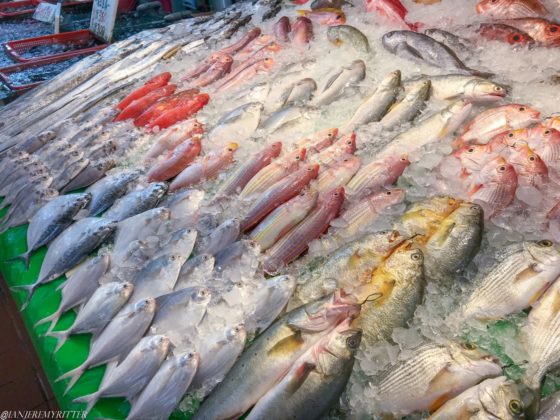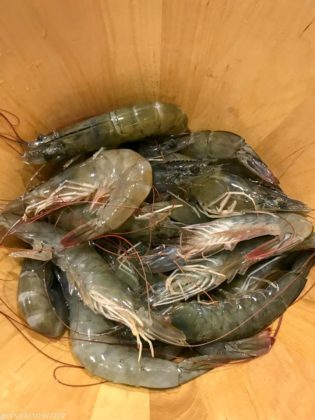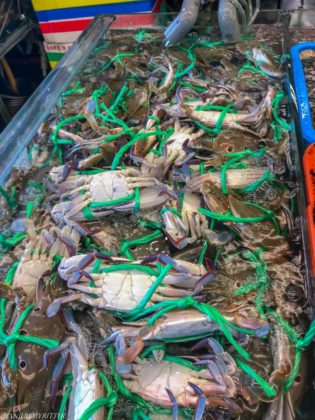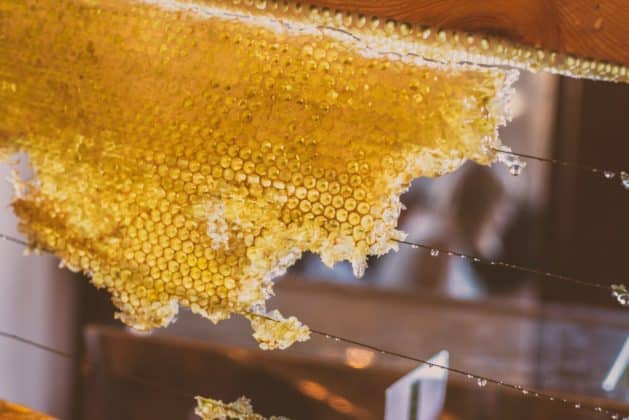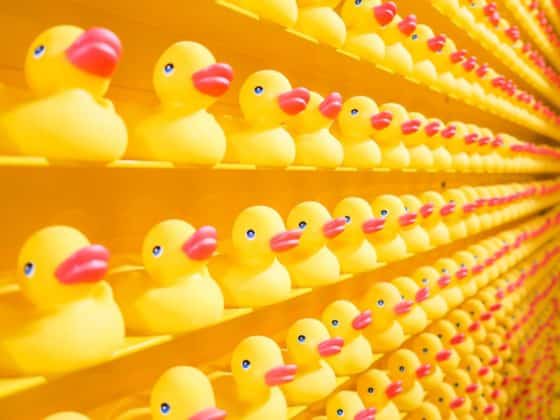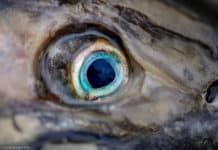This blog started as a letter but ended up being a post! I wrote this to two wonderful and eco-conscious women in my life. They’re fierce protectors of animals, and the one known as, “Lizard,” happens to be a crustacean aficionado. We have spent many days on the water hunting lobster, and we have delightful conversations about being good stewards of our resources. Here is the letter I wrote to them about how this little slice of awesome known as Taiwan provides incredible opportunity to purchase seafood in a way which fosters stewardship and knowledge.
Hello Lizard, and Doc.
These are photos of lobster, shrimp, crab, and fish from one of the numerous seafood markets in Taiwan. I adore coming here because I can support local fish sellers, and the quality is unmatched anywhere I’ve seen. (Our lobstering trips on the SeaDoo being the notable exception 😊)
Live prawns are 200NTD for 1.5lb, Manila Clams are 210NTD (but for you, ONLY 200NTD!) for 2.0lbs. The clams are tender, juicy, and best sautéed with soy sauce, oyster sauce, sake, with Thai basil and ginger in a delicious stir fry. This dish has become one of my favorites to cook. The freshness and options are stunning, and all the sellers are quite nice and welcoming to a foreigner like me.
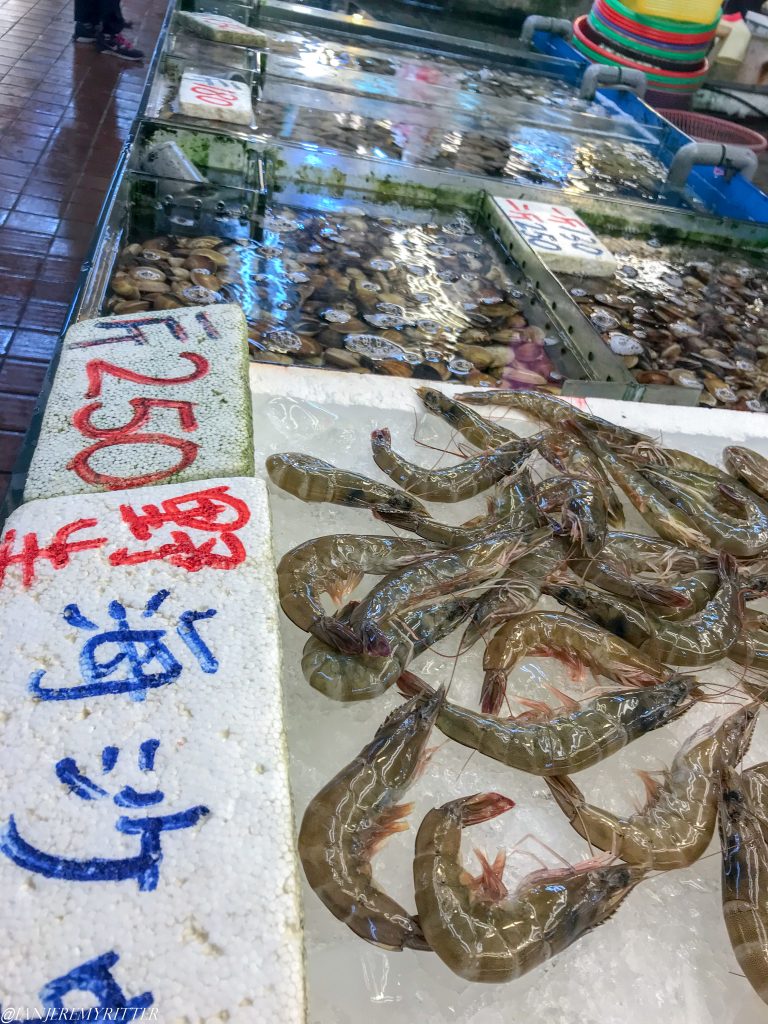
Something you would be especially interested in is there is no “fishy” odor. As you are both well aware due to my incessant preaching for years, there should be no fishy smell with fish. When you walk into the market, there is an odiferous presence for sure, but it comes from the drying racks of fish and shrimp, the many smells of the ocean previously hidden by the saltwater. This scent certainly isn’t one of deliciousness to the untrained nose, but it is one our minds know as ok. It’s a smell of food, real food. The rest of what wafts through the market is unique and of the ocean, but nothing which makes your mind say, “that doesn’t seem ok”. There is a deeper connection when we are able to experience the entire olfactory sensations associated with our food, even prior to it being on a plate. It allows us to be connected to our tasty vittles and what eating really means.
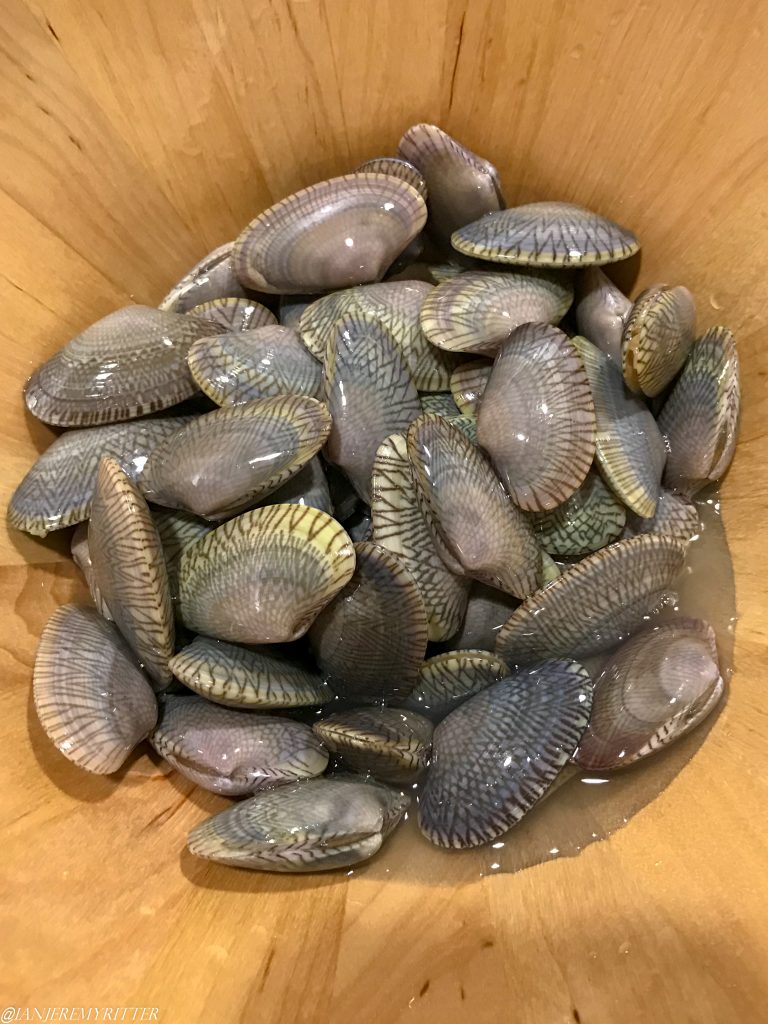
I do feel terribly sad for the animals here and look forward in many ways to the day when we have “fake meat” but I hope places like this still exist. Despite the obvious terrible nature of the whole ordeal to the animals involved, the tradition of this very humanizing activity is tangible and real. Considering the alternative methods of sale, I feel this market is the best possible way to trade flesh for money. Rather than being far removed from the origin of the animal, and those who make their living selling it, we are able to be a part of the true system. A system which in many ways, trades some lives so that others can continue living theirs. We aren’t lining the pockets of the never seen Scrooge McDucks occupying a shadowy board room. Instead, we are given the chance to participate in our food. The fact that we are confronted with what we are going to eat in its natural form prior to it being dispatched seems far better karma than observing only the fleshy remains of a once living creature, securely ensconced in shapely plastic for our emotional comfort. Don’t forget the absorbent pad hidden below the meat to ensure no juicy bits run afoul of the thin packaging veneer. Far be it from us to have a forced reckoning with the blood, viscera, and scales of a creature we see fit to toss down the hatch, but unfit to be recognized as a once living, swimming creature.
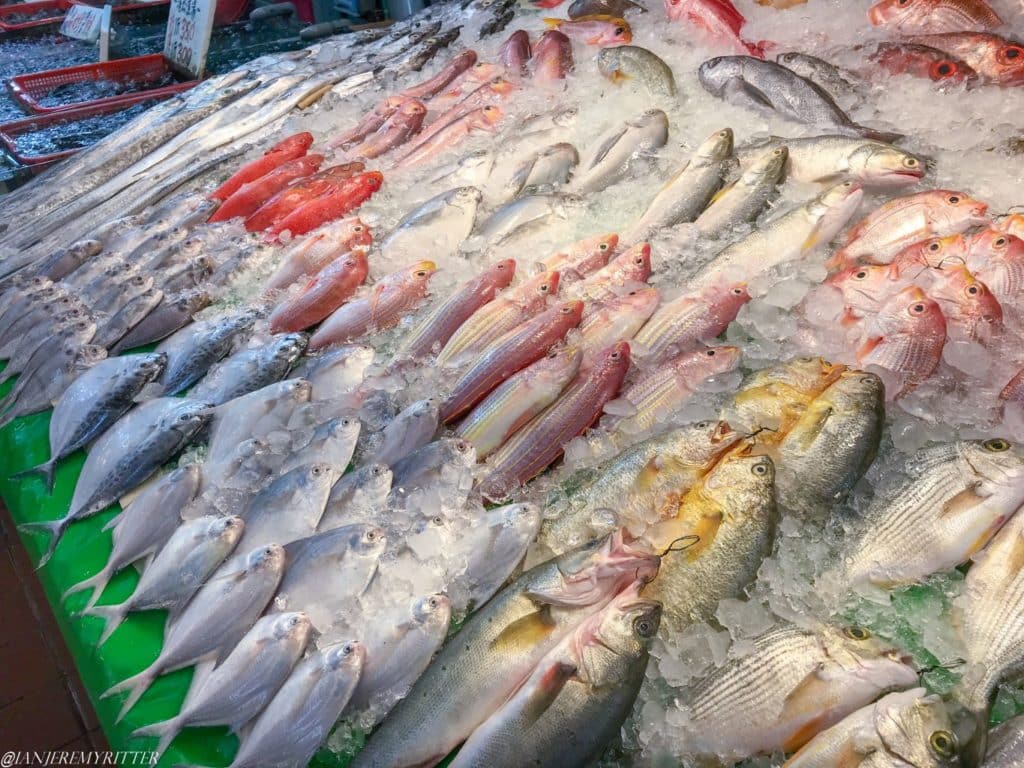
Those who offer the animals for sale are also connected. They can share where it came from, how it was brought here, and why the price is the way it is. On this day, prawn prices were a little higher because of the recent typhoon. It’s tough to get them in a storm. The fish mongers, or “yu fang” as they’re called here, are real folks, selling real fish to real people. It’s as refreshing an idea as has come along. The funny thing is, this isn’t a new concept. It’s not as if a new way to do commerce was created just to sell aquatic deliciousness.
Humans selling to Humans has only recently been tossed aside and only in the most “developed” nations. (In case you were unsure, the quotations are indeed meant to indicate sarcasm)
How is it in a culture which has so much to offer its citizens, those citizens are often prevented by law from doing the work of being a human? We sell to companies so that companies can sell to us (humans). It feels like the only benefit being achieved here is to enrich the aforementioned Scrooge McDucks occupying the shadowy boardrooms (barely humans). If that’s the only real benefit to the new, I insist, NEW system of trade in our high-level developed nation, I’m saying it’s time for a change.
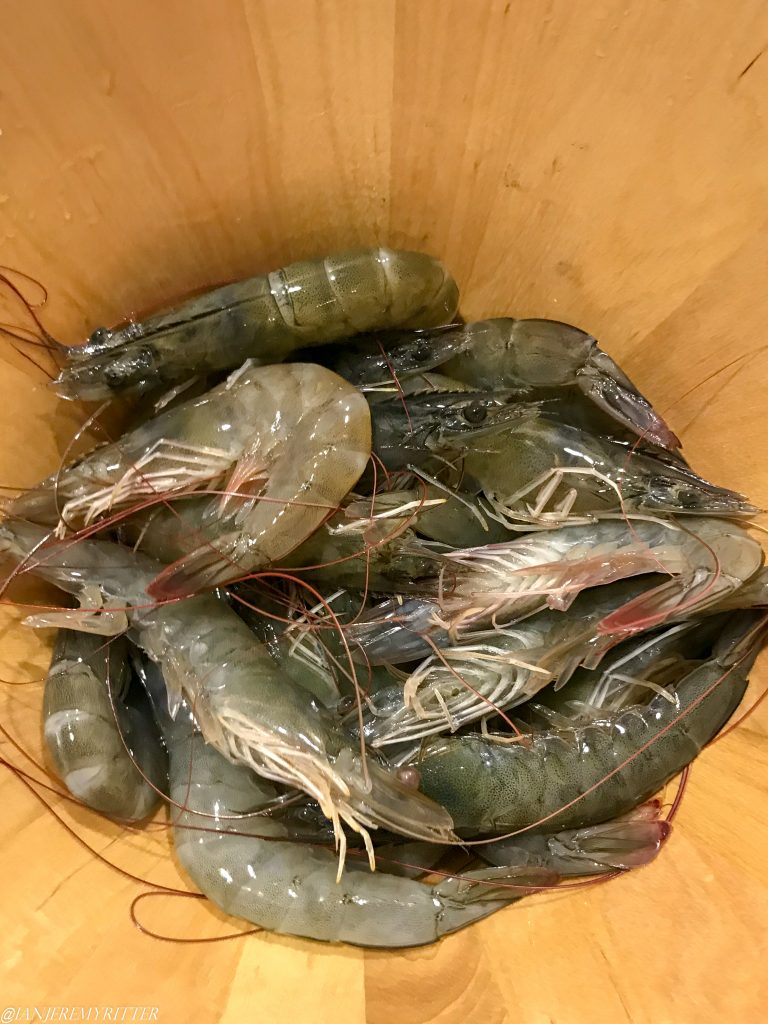
Most other nations go old school. Humans dealing with humans. We are all humans, and not lizards or bats, or some other animal which doesn’t have a proper food store. Even the lizards still do lizard things with other lizards in the pursuit of life, and they’ve been around longer than us. And if lizards doing the business of being lizards choose to engage with other lizards, it seems a teachable moment for humans who deserve better.
So let’s learn a lesson from those less developed creatures, and the countries which still have the courage and know how to be human with humans. Let’s support the local shops, let’s buy what’s in season, and let’s use our dollars to help each other, not the foul raft profiting from our lack of basic consumable goodness.
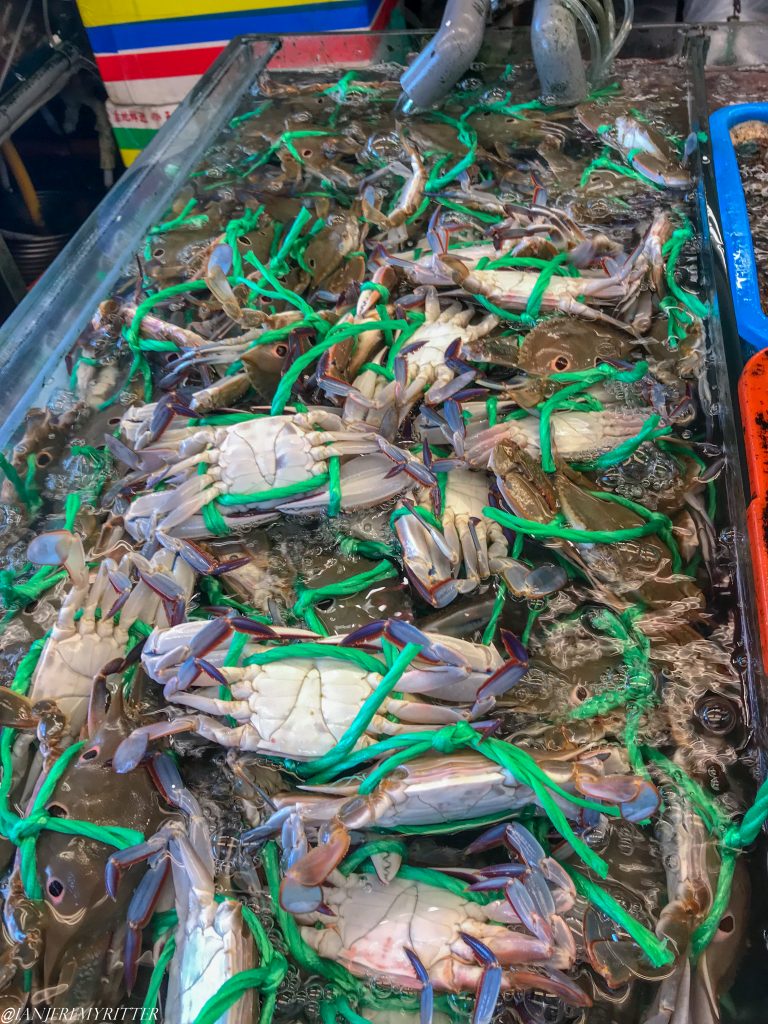
Things like farmer’s markets, buying honey and fruit from roadside stands, and purchasing produce or meat from your local co-op can make a huge difference.
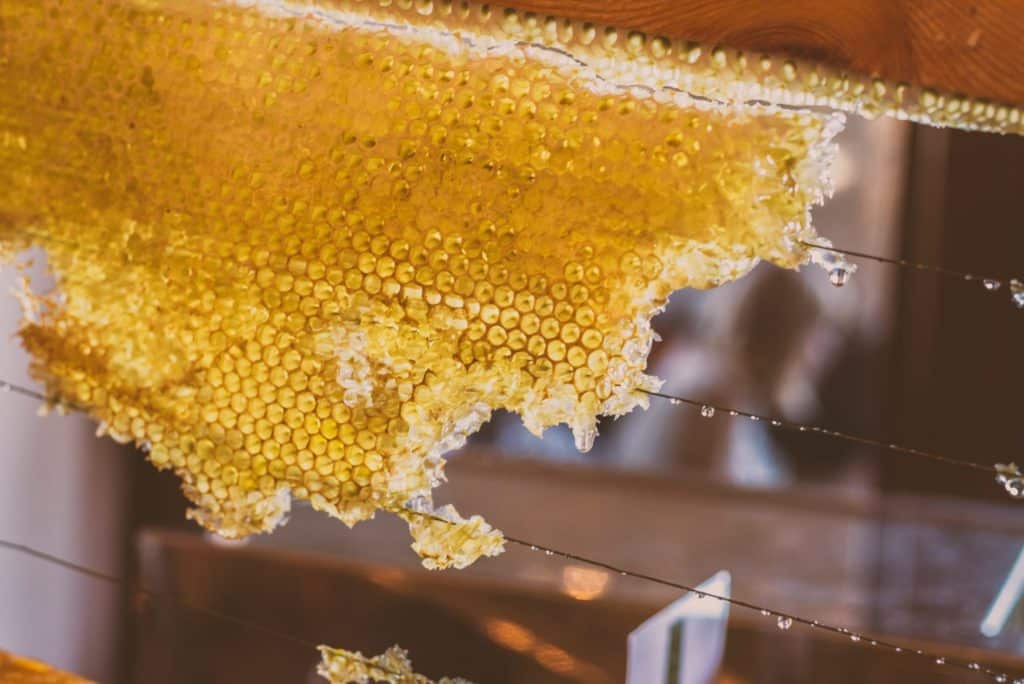
You’ll get better, more nutritious food, often at less cost, and also be helping out your fellow humans! Or if you’re a real renegade, dangerous-living, devil-may-care kinda guy like me, you can even go on your local craigslist and buy eggs from someone who could be your neighbor! Remember, they’re for my rescue dog and of course not for personal consumption Mr. FDA…**my eggs dealer and I wink to each other, shake hands, and discuss the best way to make eggs benedict with those thick and delicious bright yellow yolks.** Before laying the eggs, those happy animals were out eating the stuff chickens are supposed to, like dirt, bugs, and horse poop and it makes huge taste difference, especially to my made up rescue dog named “Danger Zone.” In case you didn’t know, chickens doing the business of being chickens with other chickens have way better eggs than the chickens who have been forced to do the business of being chickens with a company. (Whose dumb ass idea was it anyways to prevent humans from selling eggs to other humans? I’m gonna guess not a real human. Most likely, it was the bird-brained scheme of a barely human, more often known by its common name, a Scrooge McDuck.)

Quite the rant for just a few pics, but that was how I felt in the market as I toured around, and I figured you two ladies might enjoy the ramblings of Nephew Number Two. More pictures to come as this month is honey harvest and the bees have finally made enough for us to steal a little from them this year.
Love you both.
Ian



